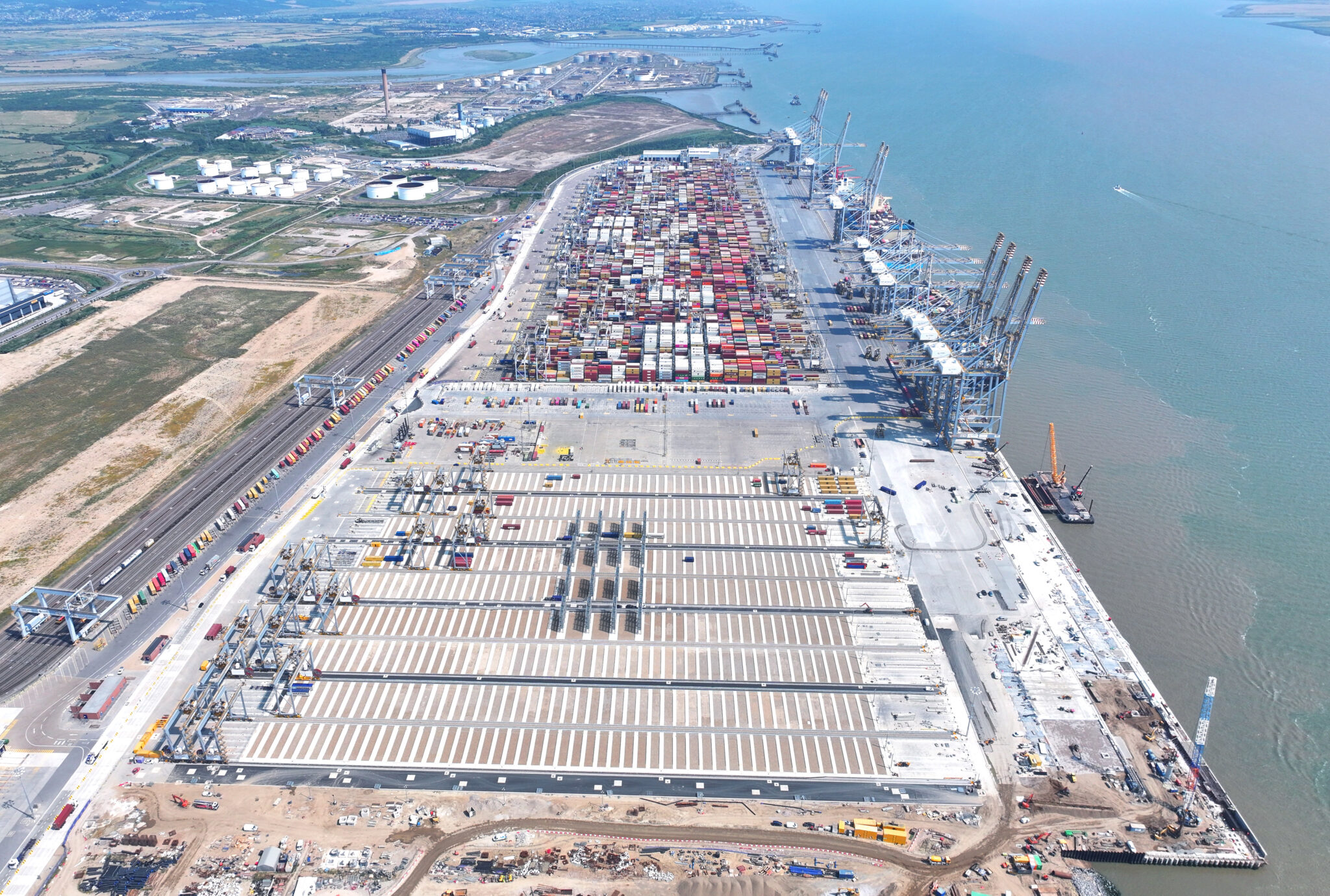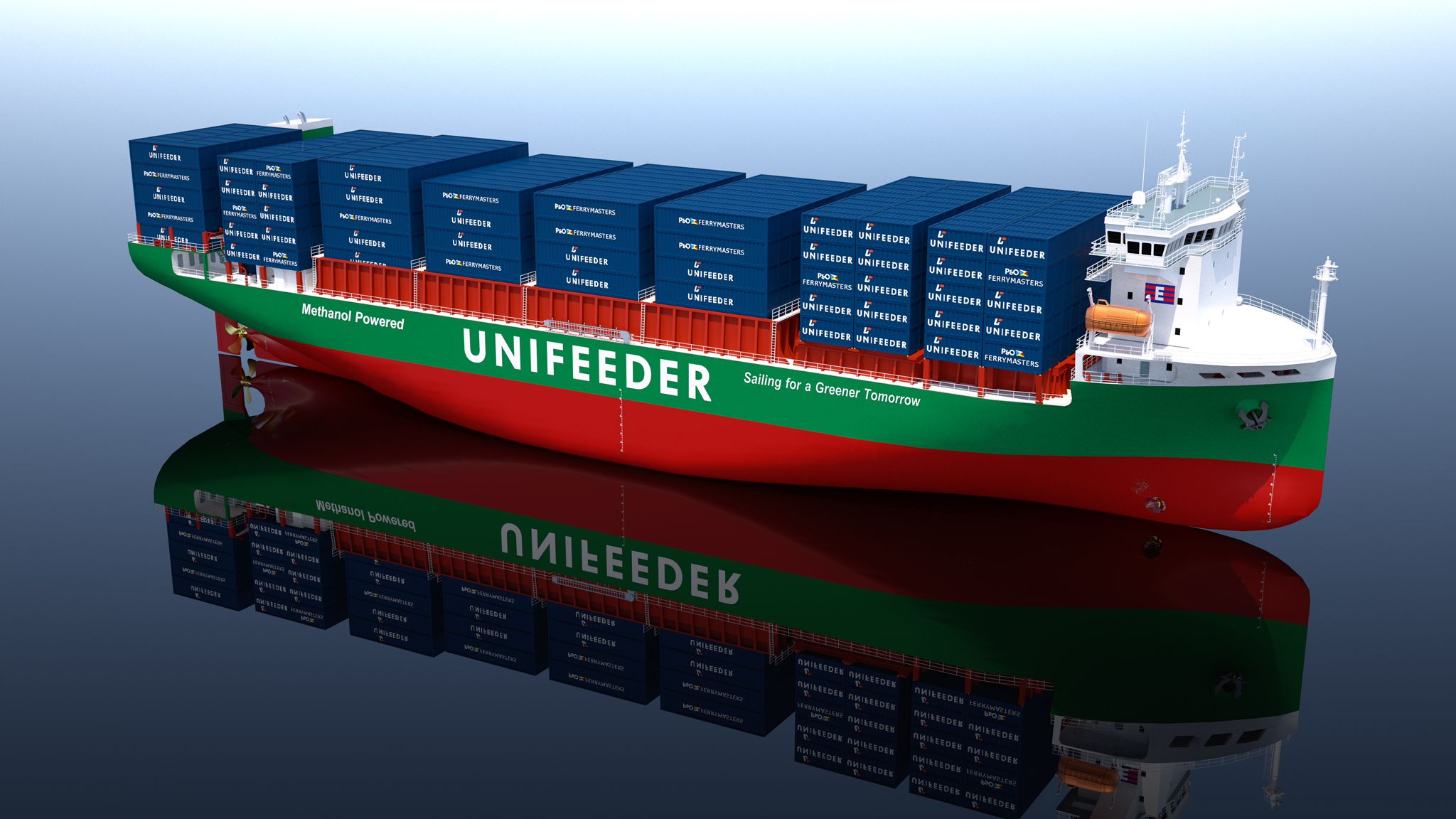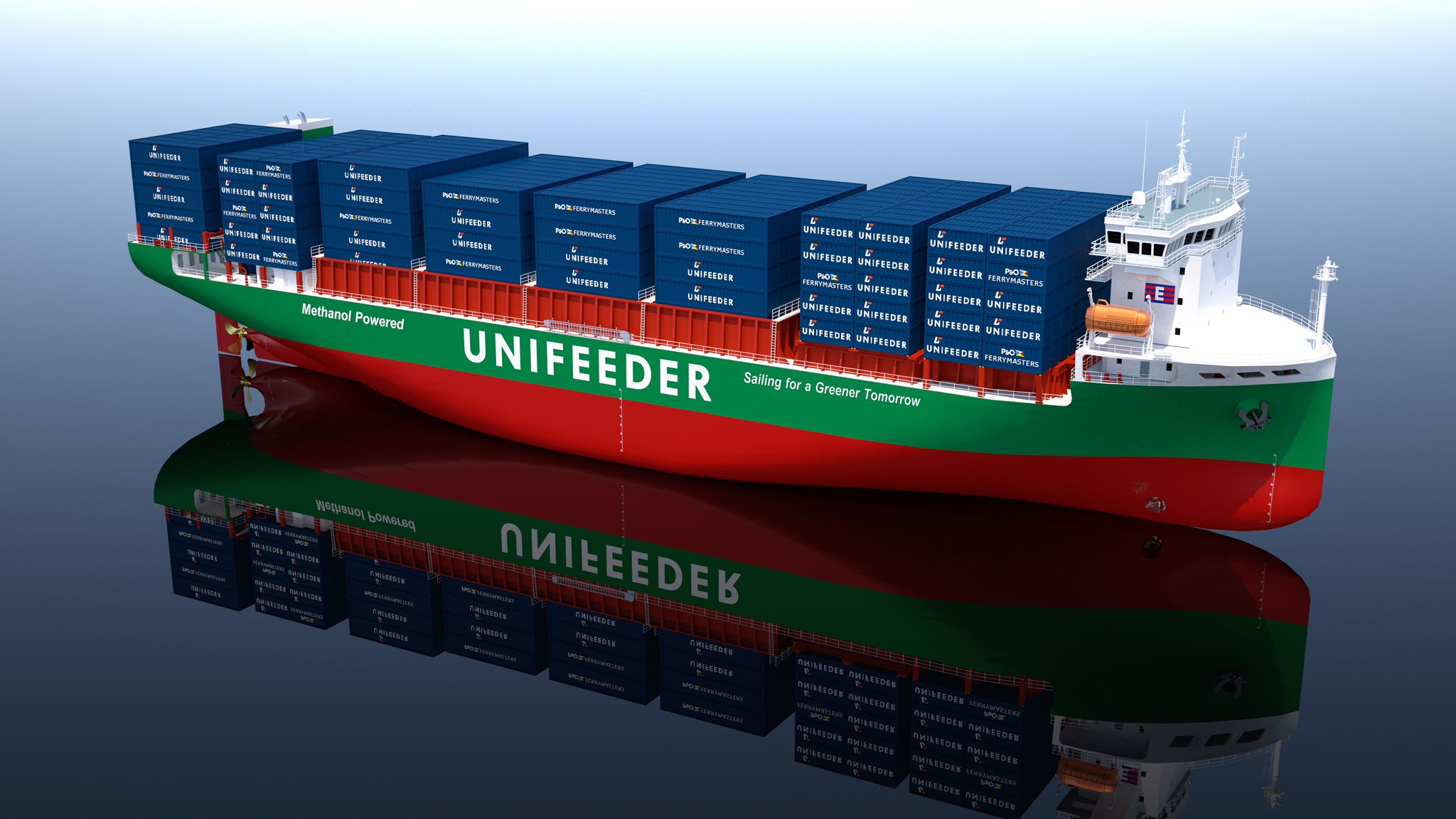DP World is trialling an innovative carbon reduction programme at its UK logistics hubs, London Gateway and Southampton, aimed at helping cargo importers cut their emissions.
Starting on 1st January 2025 for an initial six-month trial, the Carbon Inset Programme will reward importers with 50kg CO₂e of carbon credits for every loaded import container they move through DP World’s UK terminals. These independently certified credits, issued quarterly, will showcase participating companies’ efforts to reduce the indirect (Scope 3) emissions in their supply chains.
Unlike traditional carbon offset credits, which compensate for emissions through external projects like tree planting, inset credits reflect a tangible reduction in emissions achieved directly in a company’s own supply chain. DP World’s inset credits are generated through its subsidiary, Unifeeder, which deploys incrementally lower-carbon fuels across its Northern European shipping network. These credits are verified and pooled, allowing registered importers to access independently certified carbon credits.
For businesses, this represents a transparent and measurable way to cut Scope-3 emissions – indirectly produced along the supply chain, while demonstrating sustainability commitments to customers. The inset initiative builds on DP World’s award-winning Modal Shift Programme, which reduced emissions for its partners by more than 17,000 tonnes in its first year.

John Trenchard, Vice President – Commercial & Supply Chain, DP World in the UK, said: “At DP World we are constantly exploring ways to reduce carbon emissions across our customers’ supply chains. Insetting carbon emissions is a transparent, direct and pragmatic approach with immediate measurable impact for our customers. By providing easy access to an independently certified inset programme, we aim to create better awareness and encourage the adoption of more sustainable practices. By participating in the trial, a world first, import cargo owners can actively contribute to global decarbonisation efforts while aligning with their own sustainability goals.”
If 50% of import volume participates in the trial at DP World’s UK container terminals, this could replace over 11,000 tonnes of traditional fossil fuel with lower carbon marine fuels, equivalent to the reduction of 10,000 tonnes of carbon dioxide.
Christian Hoepfner, Director Group Decarbonisation at Unifeeder Group, added: “At Unifeeder, we are committed to using alternative fuels to decarbonise our logistics solutions. We are supporting DP World in the UK in their innovative Carbon Inset Programme by contributing verified GHG reductions generated on our vessels operating in Europe.”
similar news




